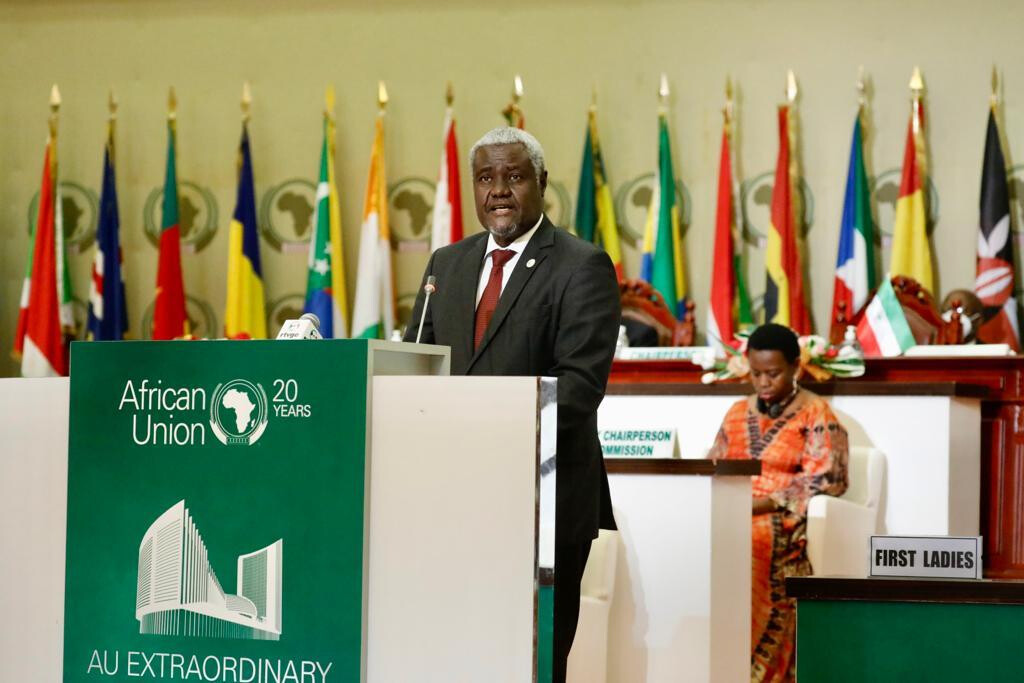
ADDIS ABABA, ETHIOPIA – The African Union (AU) concluded its annual summit in Addis Ababa on Saturday, electing Djibouti's Foreign Minister, Mahmoud Ali Youssouf, as the new Chairperson of the AU Commission. Youssouf succeeds Moussa Faki Mahamat of Chad, who served two terms. The election, conducted via secret ballot, saw Youssouf emerge victorious after several rounds of voting, ultimately defeating Kenyan former Prime Minister Raila Odinga and Madagascar's former Foreign Minister Richard Randriamandrato. Youssouf secured the necessary 33 votes in the final round.
Youssouf, who has served as Djibouti's Foreign Minister since 2005, is the longest-serving foreign minister on the continent. His extensive diplomatic experience is expected to be a valuable asset as he takes on the leadership of the AU Commission. He assumes this critical role as the continent grapples with multiple crises, most notably the escalating conflicts in the Democratic Republic of Congo (DRC) and Sudan.
The DRC's eastern region has witnessed a resurgence of violence, with the M23 rebel group making significant territorial gains and approaching Bukavu, the second-largest city in the region, after capturing Goma. The DRC government has accused neighboring Rwanda of supporting the M23 rebels, a claim Rwanda denies. The AU summit called for an immediate and unconditional ceasefire in the DRC, demanding the cessation of hostilities and the reopening of vital supply routes and the Goma airport. The ongoing conflict has displaced hundreds of thousands and threatens regional stability.
Another pressing issue on the summit's agenda was the escalating conflict in Sudan. United Nations Secretary-General Antonio Guterres, who attended the summit, urged the warring factions in Sudan to immediately cease hostilities and ensure the protection of civilians, including humanitarian workers. Guterres also launched an appeal for $6 billion in aid to address the urgent needs of approximately 26 million Sudanese requiring emergency assistance. The conflict has created a dire humanitarian crisis, with millions displaced and facing severe shortages of food, water, and medical care.
In a previous interview with VOA Horn of Africa, Youssouf outlined his priorities for the AU, emphasizing conflict resolution and "silencing the guns" across the continent. He pledged to work towards preventing conflicts, resolving existing wars and internal crises, and ensuring that the AU Commission prioritizes these critical issues. He also stressed the importance of organizational reform, aiming to recruit highly qualified and skilled Africans based on merit, competence, and excellence. Youssouf believes a strong and capable staff at the commission will be crucial for effectively implementing the reforms enacted by AU leaders.
Beyond the immediate crises, the summit also saw the handover of the rotating AU chairmanship. Angolan President Joao Manuel Goncalves Lourenco assumed the chairmanship, succeeding Mauritanian President Mohamed Ould Cheikh Ghazouani. Lourenco will play a key role in guiding the AU's agenda over the coming year.
The AU summit took place with the participation of 55 member states, excluding six suspended nations. According to an Ethiopian Foreign Ministry source, the summit saw a high level of attendance, including 29 presidents, three vice presidents, four prime ministers, and a king. This strong presence underscores the importance of the issues discussed and the commitment of AU member states to finding solutions to the continent's challenges. The newly elected leadership, under Youssouf and Lourenco, faces a daunting task in navigating these complex issues and working towards a more peaceful and prosperous future for Africa.
[Copyright (c) Global Economic Times. All Rights Reserved.]






























